Charlotte shooting: State of emergency amid protests
- Published
Gary O'Donoghue reports on the state of emergency declared in Charlotte
North Carolina's governor has declared a state of emergency in the city of Charlotte, after violence erupted during a second night of protests over the police killing of a black man.
Keith Lamont Scott was shot dead by a black officer on Tuesday.
One protester remains in a critical condition after a "civilian on civilian" shooting, police said.
Nine protesters were also injured while police arrested 44 people, according to the police chief.
Charlotte-Mecklenburg Police Chief Kerr Putney said charges included looting, failure to disperse and assault.
Five officers also required medical care, including two for minor eye injuries, he added.
Mr Scott was the third black man killed by US police in a week. Such shootings have sparked nationwide protests.
Chief of Police Kerry Putney: "We're here to seek the truth"
Riot police in Charlotte used tear gas as they faced hundreds of protesters. The local police department said four officers were injured.
Earlier North Carolina Governor Pat McCrory, external said he had "initiated efforts" to deploy the national guard and highway patrol to help deal with the protests.
"Any violence directed toward our citizens or police officers or destruction of property should not be tolerated," he said, external.
The demonstrators are angry that Mr Scott, 43, was killed by police on Tuesday afternoon at a block of flats in disputed circumstances.
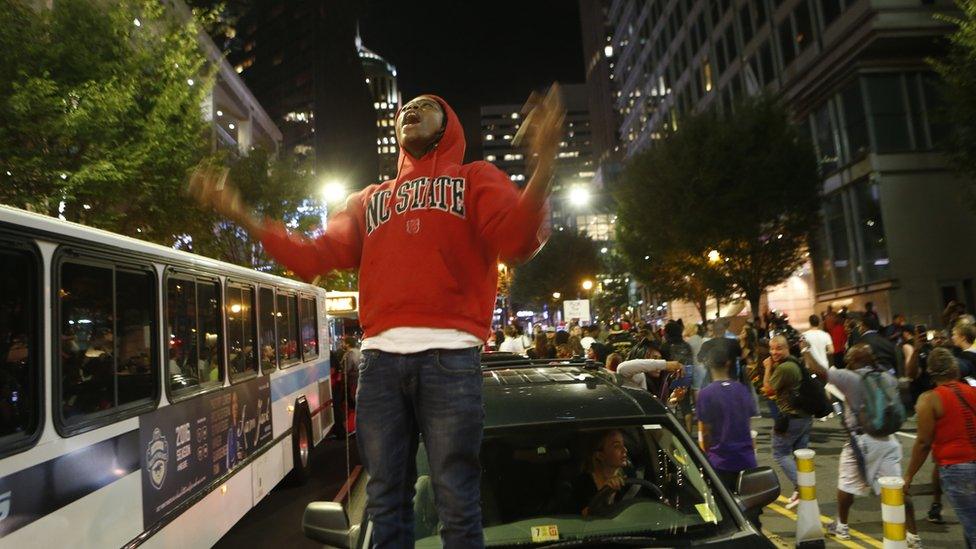
The protest began peacefully but turned violent afterwards
"We are better than this," says mayor of Charlotte, Jennifer Roberts
Police were serving an arrest warrant on another person when they say they saw Mr Scott get out of a car with a handgun.
Officers say he was repeatedly told to drop his handgun before he was shot but his family say he was reading a book, as he waited for his son to be dropped off by the school bus.
Police video of the incident will be viewed by Charlotte's mayor but will not be released to the public "at that time", the city said.
City leader Jennifer Roberts said Mr Scott's family will also be allowed to watch the footage, local television station WBTV reported, external.
It is legal to openly carry a handgun in North Carolina, but a special permit is required to carry a concealed weapon.
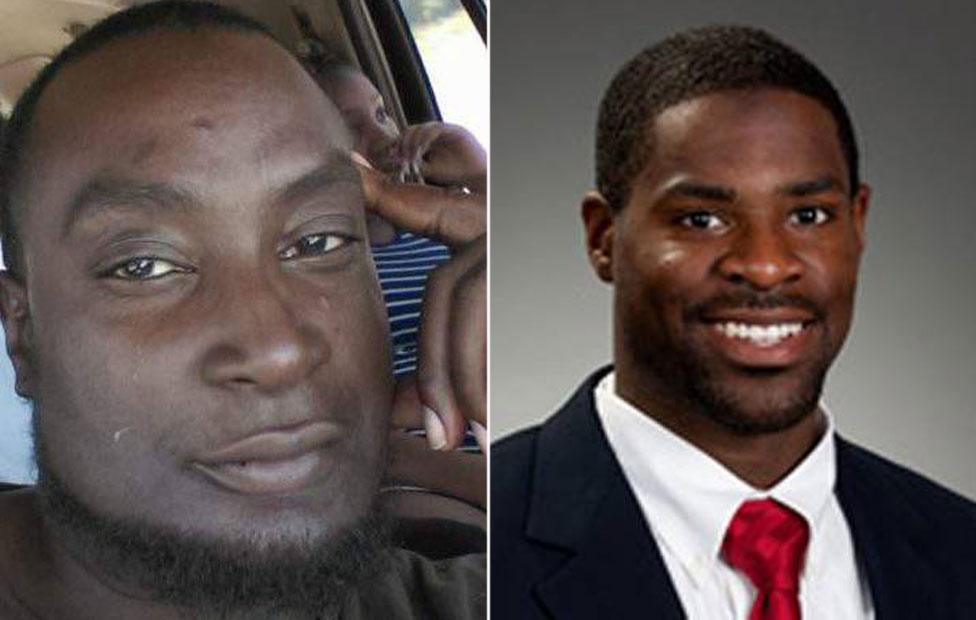
Keith Lamont Scott (L) was shot by Officer Brentley Vinson (R)
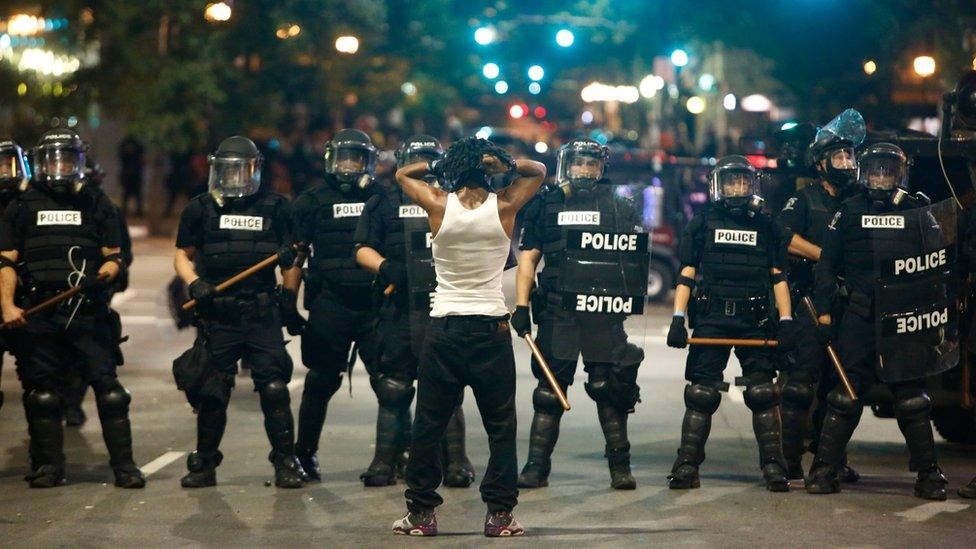
Four police officers were injured in the latest protests
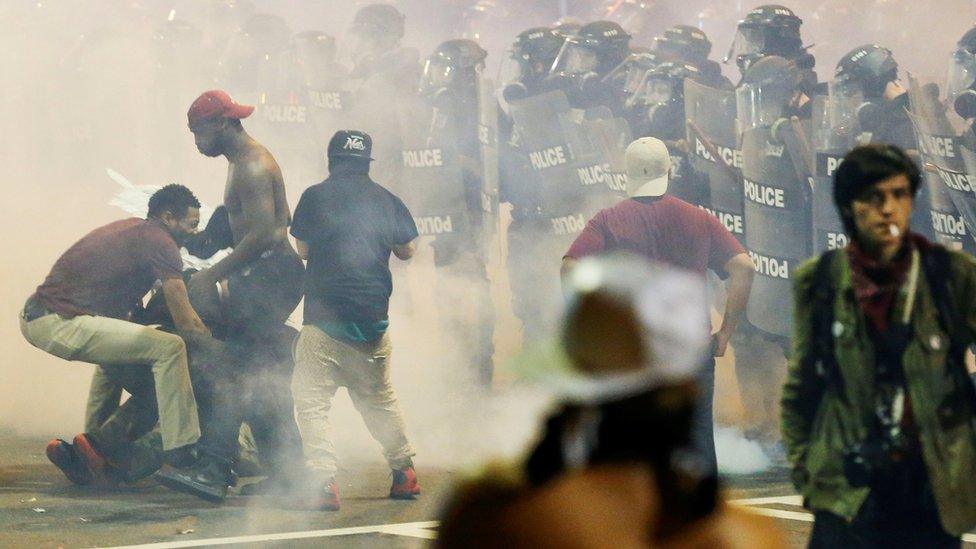
Police used tear gas and stun grenades
Bottles and fireworks
Governor McCrory declared the state of emergency as rioters clashed with police, breaking windows and setting small fires.
The second night of protests had begun peacefully but the demonstration was interrupted by gunfire and a man in the crowd was injured. The city initially said he had been killed but then issued a clarification, external.
Protesters then threw bottles and fireworks at the officers, who were lined up in riot gear. Police fired flash grenades and tear gas to repel the crowds.
Several journalists were also reportedly attacked. A reporter and cameraman for Charlotte's WCNC-TV were taken to hospital and a CNN journalist was tackled on live TV, local media report.
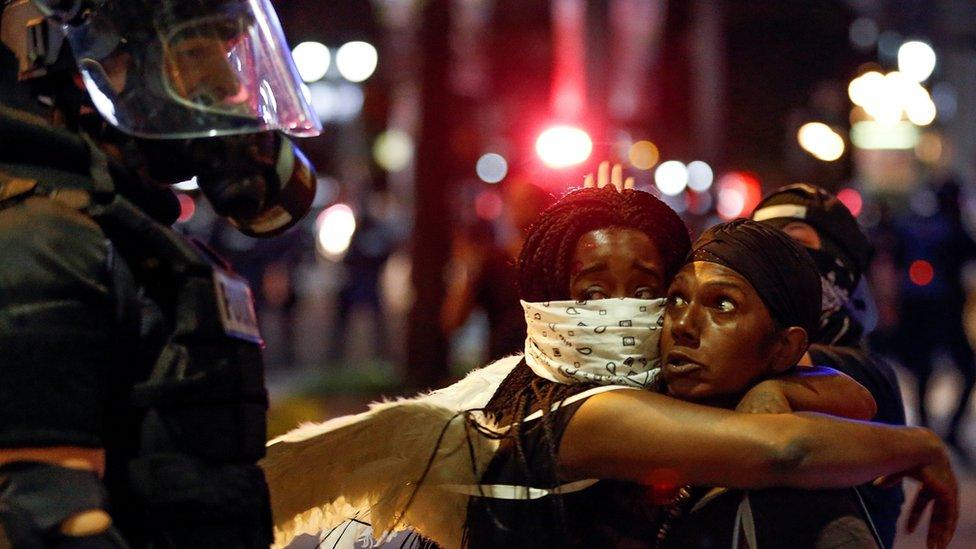
Relatives say Mr Scott was reading a book when shot, but police say he was holding a weapon
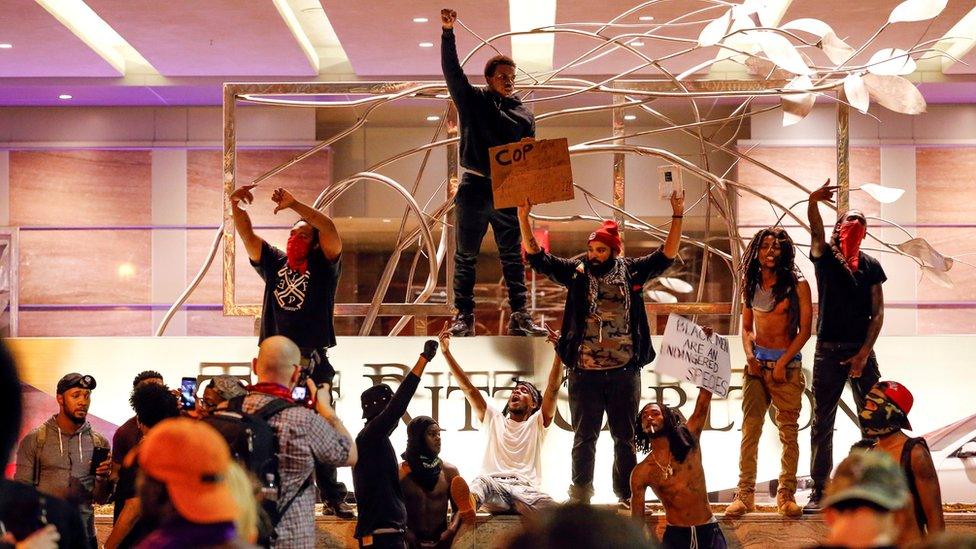
Journalists were attacked by some protesters in Charlotte on Wednesday night

Three fatal police shootings in last week
'Police didn't give my brother a chance' - Tulsa victim's sister
A boy, 13, shot dead in Ohio after allegedly pulling an air gun from his waistband during arrest
An unarmed, stranded motorist, Terence Crutcher, was killed in Tulsa, Oklahoma
Keith Lamont Scott shot in Charlotte and died in hospital

Police in Charlotte defended their actions in the death of Mr Scott by insisting he had been repeatedly warned to drop his gun.
Chief Putney told a news conference Mr Scott first got out of the car with a gun, then got back into his vehicle when officers told him to drop his weapon.
He was shot when he emerged from his car holding his weapon. The police chief was unable to say if Mr Scott had been pointing his weapon at officers.
After her father's death, Mr Scott's daughter posted a video on Facebook in which she said her father had been unarmed and reading a book.
Mr Putney said no book was found.

Charlotte: Facts
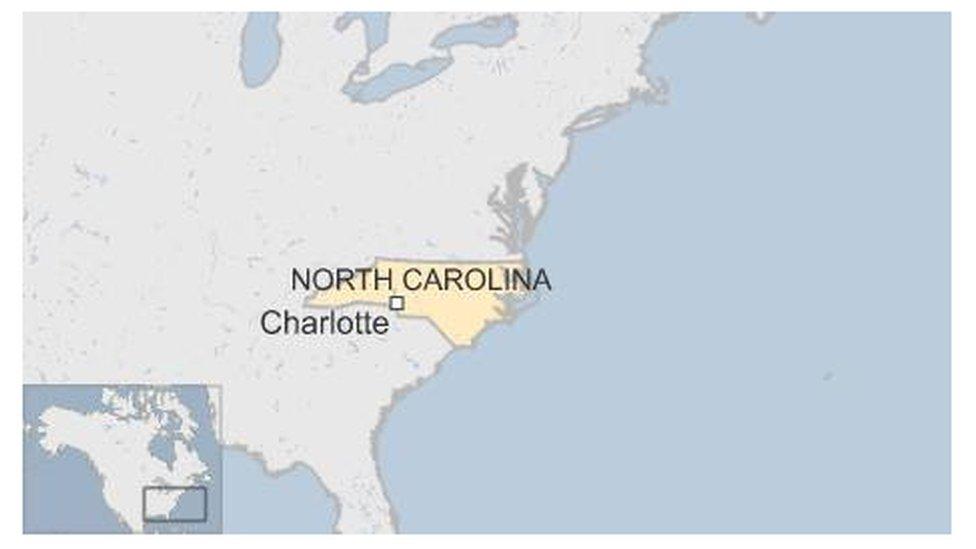
A major banking and financial centre in the American South, with a population of 827,000
The city's population is about 35% black, compared to 13.3% across the US
Police chief Kerr Putney is African-American
A white police officer was charged with voluntary manslaughter in 2013 for shooting an unarmed black man reportedly looking for help after a car crash. The charge was dropped last year after a jury could not reach a decision. The case sparked protests but no violence.

Mayor Roberts voiced her shock at the violent protests, which saw 16 police officers injured on Tuesday night.
"Charlotte is a city that has worked very hard to build good community police relations," she told the BBC.
"We have been a model of community policing. We have actually trained other police forces. This is not who we are as Charlotteans and I'm hoping we can move past these protests very quickly, move into more peaceful protests and back into dialogue."
The National Association for the Advancement of Colored People's North Carolina state chapter has called for the "full release of all facts available", including video.
"In these days of ready video and audio recordings, we believe that reviewing these recordings can and will help both sides get to the truth," it said in a statement, external.
The group said it supported peaceful protests but was against "unjust, random or purposeless acts of violence".
